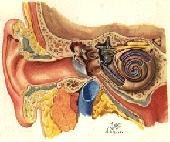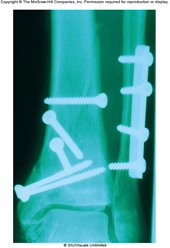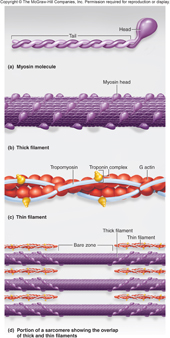| |
 |
(1) I can not imagine studying anything more fascinating than human physiology. The human body is the most complex organism in the known universe. You now have an opportunity to explore this subject for the next 16 weeks! Very few people will ever have this opportunity. So seize the moment! Be curious. Be passionate. Good luck to everyone but beware!
|
|
|
| |
Anatomy and Physiology is a difficult class. If past results are an indicator of future performance, then it is unlikely that everyone will pass this class. Furthermore, it is very difficult to earn an "A" but it is not impossible.
In a perfect world, everyone would learn the material and pass this class. And most of the students would earn an "A". Nothing would make me more happy as your instructor! But how can this happen? It will required sacrifice, hard work, passion, curiosity, dedication, and possibly some sleepless nights! I am here to help you succeed. So please follow my recommendations, dedicate yourself to learning this material, and you too may earn an "A". |
|
| |
|
|
| |
(2) I will not permit permit students to use cell phones, text or lap top computers in the lecture room. Recent studies have shown that a single computer in a classroom "creates a bubble" that will have an adverse affect on ten other students. So please do not make me interrupt the class to ask you to put away your phones or computers. If I have to ask you a second time then I will have to ask you to leave the room. |
 |
|
|
| |
|
|
| |
(3) My lectures are formatted as Power Point Presentations and posted on the internet so you do not need to take copious notes in class. You should only need to take reference notes as I make additional comments related to individual slides. Some students find it helpful to print out my lecture slides before lecture (four slides per page is economical and large enough to read) and bring them to class so they can add comments to the slides as we work through the slides in class. I have also posted a suite of other learning tools within this Web site to supplement my lecture present ions (See Below). |
|
| |
|
|
| |
 |
(4) You need to have realistic expectations for the amount of study time that you will need to pass this class. The Michigan Educational Association tells us that for every lecture hour a student needs to budget two to three hours in study time. So if you do the math, you will need to budget a minimum of 12 to 18 hours per week to pass this class.
This is not 18 hours in front of a TV with a physiology book on your lap. This is 18 hours in a library. This is 18 hours in addition to the time that you will spend in class and/or in the lab! |
|
|
| |
|
|
| |
(5) This course is not designed to cover everything that is in your textbook. The course is designed to cover a select list of learning objectives deemed necessary to be successful in an "allied health program". However, if your goal is gain a comprehesive understanding of the functions of the human body then you will need to read the book and ask questions about those topics which you don't understand. Furthermore, you need to be an "empowered learner". This means you will need to integrate our lecture material with your "other experiences". Remember, it is your responsibility to ask questions if you do not understand the material! |
|
| |
|
|
| |
You need to READ THE BOOK! Physiology is an extremely technical subject. It is likely that you will not understand the subject when you first read about the subject. Reading science is not like reading fiction. To understand a scientific concept, you may have to read the topic several times and then "think" about the topic for several days before you truly understand the topic. So don't become frustrated, become even more curious and be persistent. You can learn this stuff! |
 |
|
|
| |
|
|
| |
There are "Homework Assignments" posted in this Web site for each chapter. The first category under the "Home Work Assignments" are links to videos. These videos are mapped to my lecture topics. These are designed to help you "see" the physiology. You need to use these videos and they will help you understand the concepts discussed in the reading assignments. |
|
| |
|
|
| |
Another category in the "Homework Assignment" section are the Flash Cards. You are not required to do the Flash Cards, however. Those student who do the Flash Cards are more likely to earn an "A". The Flash Card questions are mapped to your text book reading assignments, the Science Department's Learning Objectives, and the topics covered in class. |
|
| |
|
|
| |
 |
The Learning Objectives are required lecture topics assigned by the Science Department. These are posted on this Web site. These objectives represent "minimum goals". As time permits, additional subject matter will be added to these Lectures Objectives.
There are other assignments and resources posted on this Web site to help you learn AP. Please take advantage of these resources. Studies prove that learning increases when students study the subject using multiple presentation formats (lecture, lab, video, audio, etc.). This is the concept and justification for this Web site. |
|
|
| |
|
|
| |
Remember, the human body is a complex organism. So you should not be surprised when I tell you, "Physiology is going to be a difficult subject to learn". However, physiology is also a fascinating subject. I know as you learn more about how the human body works, you too will be amazed with the structure and function of the human body. |
|
| |
|
|
| |
 |
I am going to challenge you to do more than you think you can do. I will challenge you to learn complex scientific principles which are the foundation of physiology. Your reward will be the knowledge you gain as you study this subject, the respect you earn as you master this exciting subject, and the self confidence you possess as you achieve your goal. |
|
|
| |
|
|
| |
(6) I am a strong believer in "time-on-task" and the value in making "flash cards ". When you have a large volume of information to learn, study guides and/or flash cards help you organize the information. As you read a chapter, you should write out the answers to the questions in the flash cards. This is the information that I feel is most important for you to know. It is also the information that will most likely to be on your exams! So after you complete the flash cards, use these in student study groups to prepare for the unit exams.
I encourage you to form study groups with your classmates. Use the flash cards as the group's "quiz sheet" to "stimulate dialogue and test your knowledge within your study group". You may want to set up an open "Flash Card" study group time on a Saturday or Sunday in the library. Everyone is invited to participate but you must bring your Flash Cards to join the group. Break up into smaller groups and quiz each other using your Flash Cards. Turn it into a game and have some fun while you learn AP! This works! If you need an A in this class, do it!
|
|
| |
|
|
| |
(7) You need to be honest with yourself before you start this class. Its important to access how much time you can dedicate to Anatomy and Physiology! As you know, there are only so many hours in a week. This class demands that you commit up to 30 hours per week between class time and study time.
So please do not set yourself up for failure. Make sure you ask yourself the right questions before you start this class. Are you working a full-time or part-time job? What is your time commitment to spouse and/or family? Are you taking other classes with Anatomy and Physiology? Do you have a commitment that will cause you to miss class during the semester? Ask yourself if this the right time to take this class? Ask yourself, "Can I arrange my life for the next 16 weeks so I can "succeed"!
|
|
| |
|
|
| |
 |
(8) You also need to ask yourself, "Am I academically prepared to take this class?" What is your science background? Do you have basic math skills? Do you know the metric system? Do you understand the basic principles of physics and chemistry? Do you understand biology? These are all subjects that we relie upon when we study the functions of the human body. |
|
|
| |
If you lack a solid science background (you are not prepared) then you will need to work extra hard to master this subject. If you have a strong science background (you are better prepared) then you are more likely to pass this class. |
|
| |
|
|
| |
(9) Here is the most important idea that I can share with you. In my class, there are shared responsibilities between me and my students. As the instructor, I will dedicate myself to help you learn this material and I will be prepared for my lecture and lab classes. But you need to come to my classes prepared to learn!
Lectures and labs are like opportunities. So make sure you prepare for lectures and labs by reading the book and familiarize yourself with the lab assignments before you come to class. Success occurs when you are prepared for an opportunity.
If you fail to prepare for lectures and labs then you will not succeed. I also believe people who have achieved greatness have also experienced failure at some point in the life. However, success is achieved by those who try and keep trying until they succeed. You need to ask yourself, "Am I ready (prepared) for this opportunity?"
So please don't come to class and think you will learn physiology by simply listening to a lecture. Lectures are important however the work you do outside of class is more important than the lectures. In a way, lectures allow you to ask questions and confirm your understanding about various subjects. Unfortunately, if you fail to prepare for the lectures as well as for the labs then I can not help you. You are likely to struggle with this class. (Article of Interest)
Beware, this course is designed as a "gate keeper ". The class is designed to measure your "academic fitness" to qualify for a career path. So I understand why this class is of particular importance for my students. It is my goal to help all my students achieve their academic goals, however. It is only you that can put a value on your education.
|
|